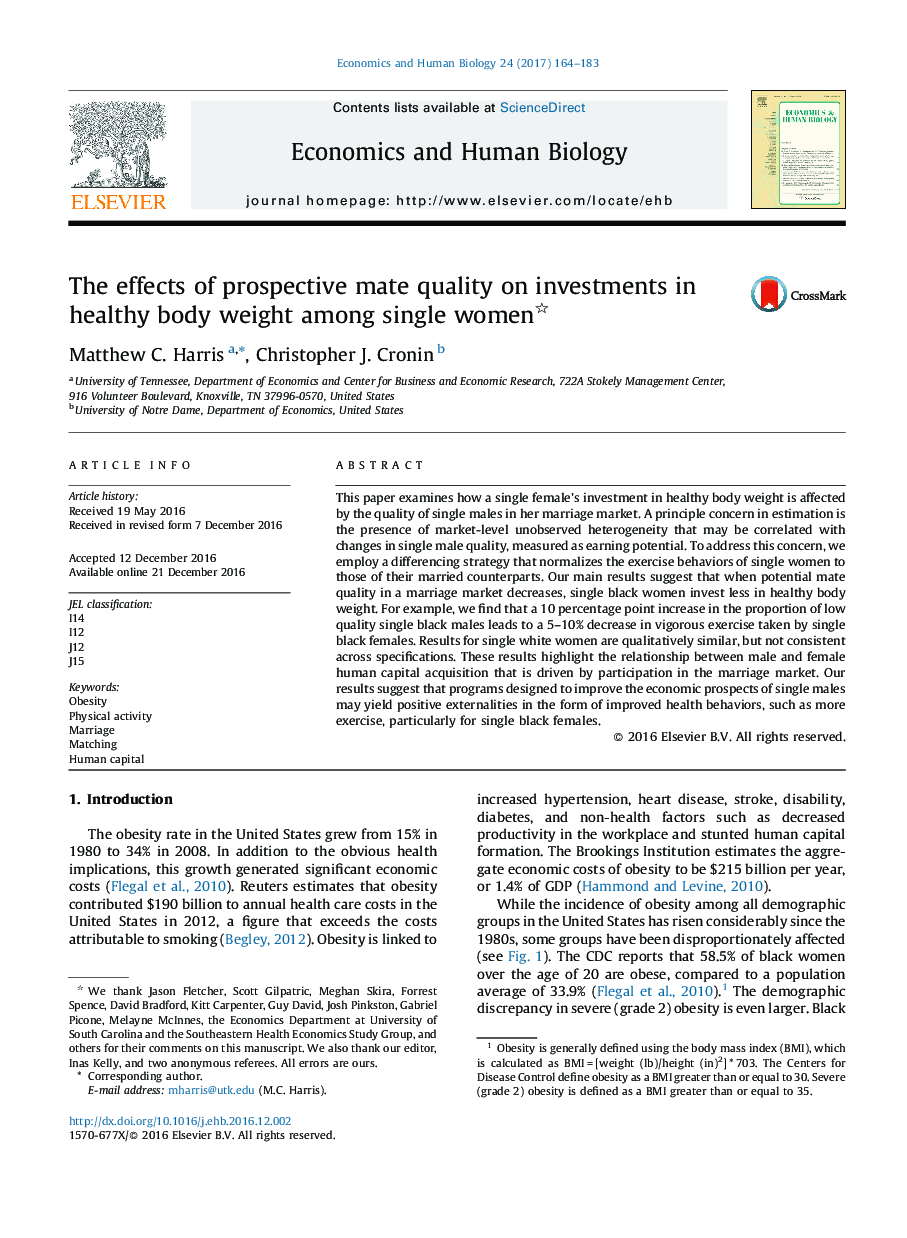| Article ID | Journal | Published Year | Pages | File Type |
|---|---|---|---|---|
| 5056797 | Economics & Human Biology | 2017 | 20 Pages |
â¢This study examines the relationship between suitability of mates and exercise.â¢To control for time-varying unobservables, a quasi-triple difference is used.â¢Specifically, within a marriage market year, we difference single vs. married women.â¢A 10 pp increase in 'unsuitable' men reduces single black women's exercise by 10%.â¢Results are insignificant for white women.
This paper examines how a single female's investment in healthy body weight is affected by the quality of single males in her marriage market. A principle concern in estimation is the presence of market-level unobserved heterogeneity that may be correlated with changes in single male quality, measured as earning potential. To address this concern, we employ a differencing strategy that normalizes the exercise behaviors of single women to those of their married counterparts. Our main results suggest that when potential mate quality in a marriage market decreases, single black women invest less in healthy body weight. For example, we find that a 10 percentage point increase in the proportion of low quality single black males leads to a 5-10% decrease in vigorous exercise taken by single black females. Results for single white women are qualitatively similar, but not consistent across specifications. These results highlight the relationship between male and female human capital acquisition that is driven by participation in the marriage market. Our results suggest that programs designed to improve the economic prospects of single males may yield positive externalities in the form of improved health behaviors, such as more exercise, particularly for single black females.
